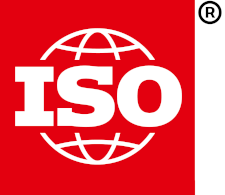ISO
The International Organization for Standardization (ISO) is an international non-governmental organization that develops and publishes standards for products, services, and systems. ISO standards apply to a broad range of industries, including computer and networking technology, manufacturing, agriculture, healthcare, and business services. It draws its membership from standards bodies in more than 160 countries to develop technology and product standards used worldwide.
Every standard published by the ISO is identified by a reference number, often (but not always) combined with the year the standard was published or revised. For example, ISO 3758:2012 defines a common set of symbols for laundry care and was last updated in 2012. Standards for information technology are developed through a joint technical committee with the International Electrotechnical Commission (IEC) and are labeled as ISO/IEC standards. For example, ISO/IEC 7498 defines the OSI model that standardizes communication between computer systems, while ISO/IEC 10918 defines the JPEG standard for compressing digital images.
Other Uses
An ISO file is a disk image file that contains an exact duplicate of a source disk's contents. It comes from the ISO/IEC 9660 standard, which defines the file system used to store data on CD-ROM discs. Discs and disk images formatted to this standard can be read on any operating system that supports the standard, including Windows, macOS, and Unix/Linux. ISO disk images are uncompressed and contain the source disc's entire file system, including directory structure and file metadata.
ISO also refers to the level of sensitivity to light in photography. It originally referred to the sensitivity of camera film, but now also applies to the sensitivity of a digital camera's image sensor. ISO is one of the three elements that determine an image's exposure, along with aperture size and shutter speed. Taking a photograph at a low ISO (100 to 200) results in a sharp image with little noise but requires a lot of light; taking one with a high ISO (800 or above) does not require nearly as much scene lighting but does result in a noisier image.
NOTE: "ISO" is not officially an abbreviation of the organization's full name in any language. Instead, the short form is derived from the Greek "isos," meaning "equal," to maintain the same short form no matter the language used.
File extensions: .ISO
 Test Your Knowledge
Test Your Knowledge